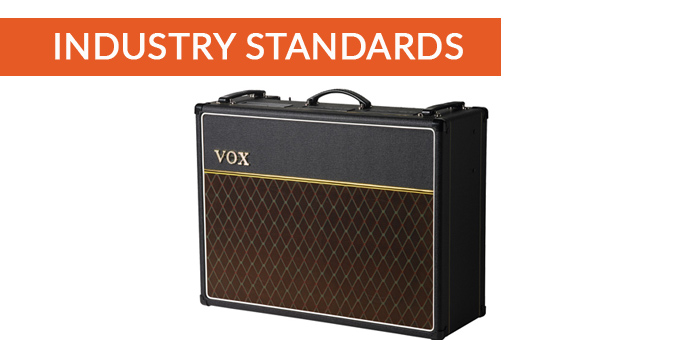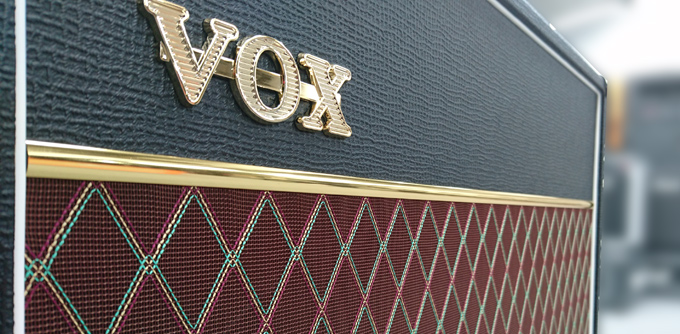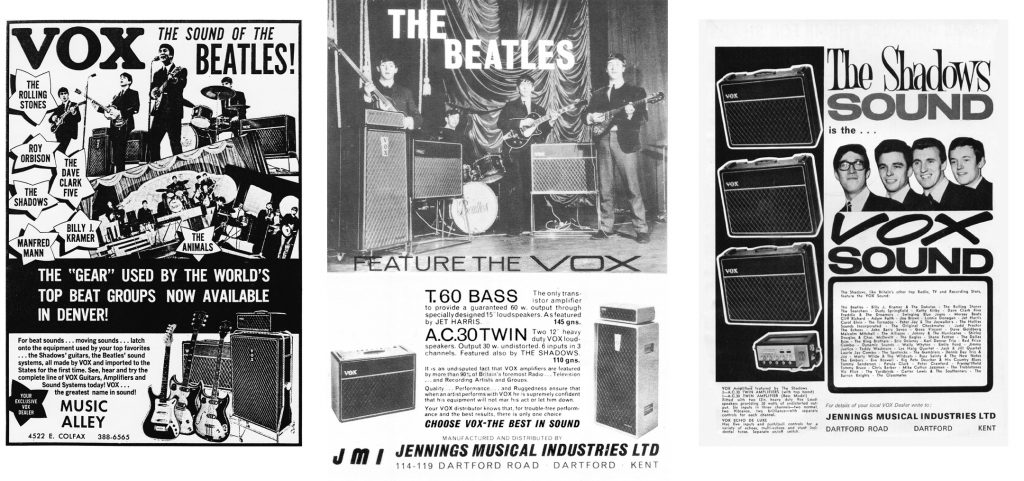Industry Standards: Vox AC30 Guitar Amplifiers
Posted on Tue 28 March 2017 in Amplifiers

When considering the history of guitar amps it is easy to forget that for such a vital part of the chain it is still in its infancy as a product with many of the amps that we know, love and hold as ‘legendary’ are less than 60 years old, making the birth of them a living memory for many players. One amp in particular has been there pretty solidly through all this time, and although it’s parent company has changed hands many times it has always been associated with an industry standard among live and studio musicians. Today we are looking at the * Vox AC30* guitar amplifier.
When considering the history of guitar amps it is easy to forget that for such a vital part of the chain it is still in its infancy as a product. With many of the amps that we know, love and hold as ‘legendary’ are less than 60 years old, making their birth a living memory for many players. One amp in particular has been there pretty solidly through all this time and, although it’s parent company has changed hands many times, it has always been associated an industry standard amongst live and studio musicians. Today we are looking at the Vox AC30 guitar amplifier.
In the late 1950’s Fender had not only revolutionised the electric guitar but also the guitar amplifier and had started making a name for itself for delivering a powerful sound with the Bassman and Bandmaster amps. This is where Jennings Musical Instruments (with Dick Denney and engineer Derek Underdown) stepped in to attempt to build an amplifier that would compete with Fender.
The initial designs of the AC15 and AC30 housed a single speaker, but this was upgraded to two 12” Celestion speakers in 1959 to help deliver a wider spread of sound. This upgrade was integrated into the design at the request of Hank Marvin of The Shadows (who was a close friend of Dick Denney and had agreed to help test and develop the early prototype models). The two drivers were backed by 30 watts, four inputs and two channels (normal and vibrato). It also featured four EL84 valves, replacing the previously used EL34 tubes. Word would soon spread about the new British-made amp and by 1962 the amps (reportedly an AC15 Twin and an AC30 Twin with top boost) found their way into the hands of John Lennon and George Harrison who used them for their first single Love Me Do (and every recording ever since).
Backed by the endorsement from the Beatles, Vox amps were soon being used by many bands as part of the British Invasion wave including Rolling Stones, The Animals, Manfred Mann, followed later by the likes of Queen and The Who). All of these bands are associated with pristine guitar tones, both on-stage and in the studio, that went on to inspire generations of future musicians.
It wasn’t all plain sailing though. As mentioned above, Vox has changed hands numerous times. The first being in 1970 when Birch-Stolec Industries stepped in to rescue a financially struggling JMI. This was followed a few years later by a buyout from Dallas Arbiter in 1973. In the late 70s British distributor, Rose Morris lost their contract with Marshall amplifiers and soon made a successful swoop for Vox, before selling it in 1990 to Korg. Despite all these changes the AC30 was a continually successful amp, being produced and selling in large quantities. Although various modifications were attempted (such as different loudspeakers, circuitry and cabinet woods) the original design returned in the early 1990s, thanks to Korg. Korg was also keen to continue the tradition of making Vox AC30 amplifiers in Britain.
Alongside the ever-consistent AC30, Vox have also been producing some other reputable guitar amps under the Korg ownership, with hand-wired versions of classic models to the Valvetronix series that combines characteristics of classic tube amps with sophisticated digital technology. Despite advances in technology (not only at Vox, but across all amplifier manufacturers) it is the Vox AC30 that still holds up as the enduring amp of choice for many modern players including Johnny Greenwood of Radiohead, Matt Bellamy of Muse and Chris Shiflett of Foo Fighters.
The Vox AC30 has been emulated many times through digital modelling or tone matching by various other amplifier manufacturers (with varying results), but the only way of getting that true clean Vox tone is with a Vox (or a huge wall of them if you are Brian May).
[ ]
]
Because of their unmistakable tone (despite changing hands numerous times), association with the British Invasion and classic trademark looks, we certainly have pleasure in inducting the * Vox AC30* onto our list of Industry Standards.
